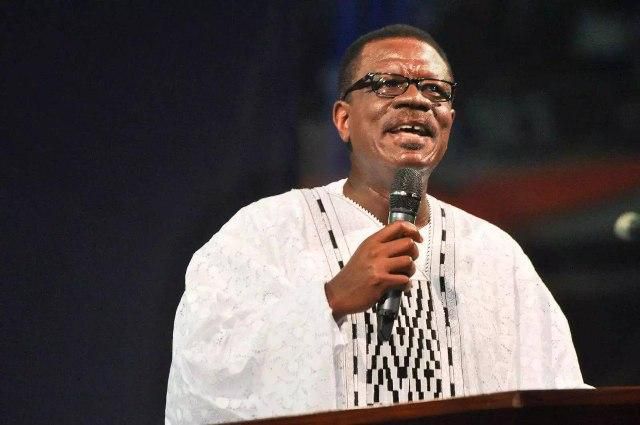Otabil, 13 others dragged to court over Capital Bank collapse
)
The International Central Gospel Church (ICGC), its founder
The aforementioned have been sued by Messrs Vish Ashiagbor and Eric Nana Nipah, who both work with accounting and auditing firm PricewaterhouseCoopers.
Pastor Otabil has come under criticism from a section of Ghanaians over his involvement in the collapse of Capital Bank, where he served as Board Chairman.
READ ALSO: Video:
A detailed investigative report indicates that a GHS610 million liquidity support from the Bank of Ghana to help stabilize Capital bank was diverted into other businesses.

The ICGC founder together with then CEO of the bank, Ato Essien, have since been under scrutiny over their roles in the diversion of the funds, as well as the subsequent collapse of the Capital bank.
In the latest development to this issue, Accra-based Class FM reports that the preacher, his church and 13 other shareholders of the defunct bank have now been dragged to court.
The plaintiffs argue that the Capital Bank collapsed as a “direct result” of the defendants’ “misgovernance” and “willful” breaches of banking regulations.
In their writ, they also accused the bank’s founder, William Ato Essien, of using depositors’ funds as his ‘personal piggy bank’.
They, therefore, want Mr. Essien to repay all the loans he took as shareholder, which is estimated at a whopping GHS580 million.
The two plaintiffs said ICGC also owes GHS51.6 million being its share of a GHS482 million fund kept by the shareholders in “non-existent investments” on their books.
Another shareholder of the defunct Capital Bank, Oheneba Osei-Akoto, was also accused of using his residential property at Regimanuel Gray Estates at East Legon as collateral to take a loan of GHS2.42 million.
According to the plaintiffs, the defendant took the loan in December 2016 but has so far failed to pay it back.
To this end, the plaintiffs maintain that Pastor Otabil, ICGC, and all the other listed defendants caused ‘serious financial loss’ to the Capital Bank, which eventually led to its collapse last year.
Meanwhile, Pastor Otabil explained earlier in August that his role at the Capital Bank was in a “non-executive” capacity as he was “not involved in the day-to-day management and operations of the Bank”.
)
)
)